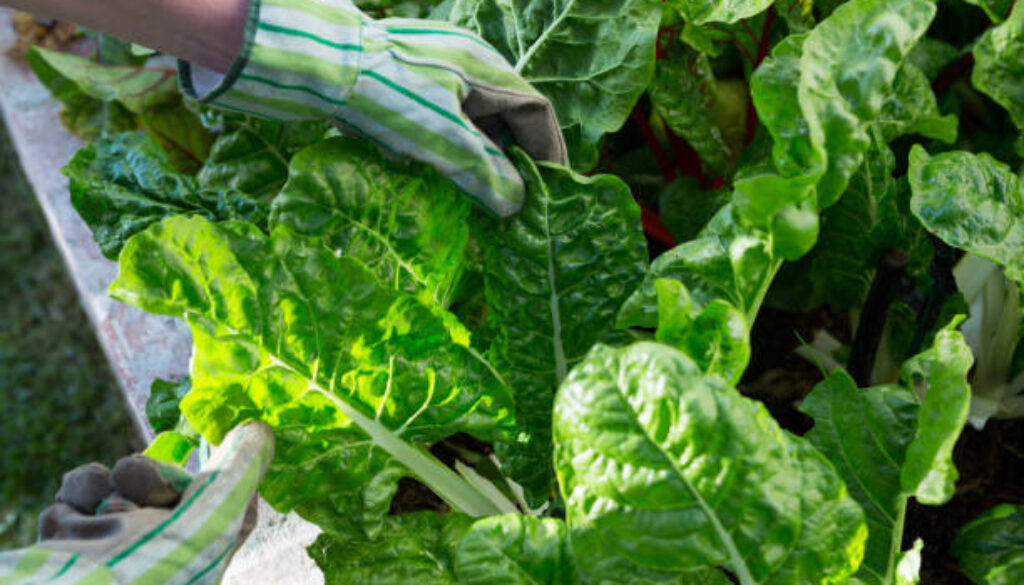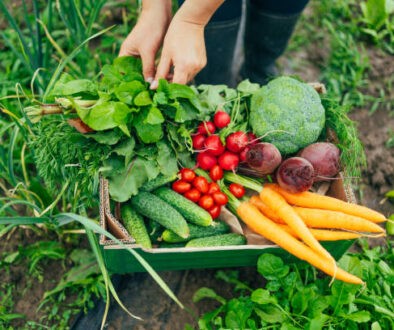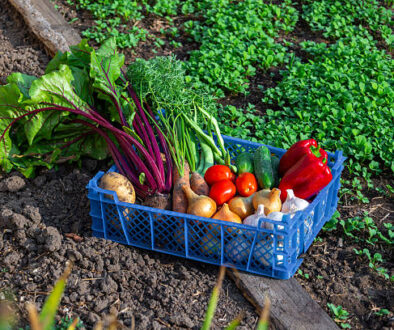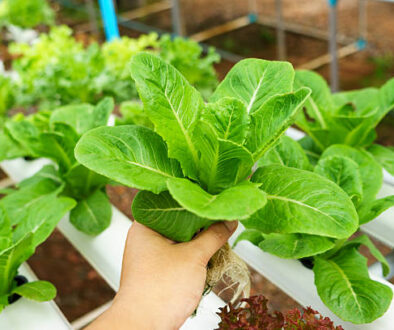15 Winter-Friendly Vegetables for Your Garden
Welcome! This post may contain paid and/or affiliate links. I may earn a small commission if you make a purchase at no extra cost to you.
When the days get shorter and the air turns crisp, many people pack up their gardening tools and wait for spring.
But here’s the secret: you don’t have to stop growing food when it gets cold.
A winter garden can be just as rewarding, and in many cases, the vegetables are sweeter and tastier because of the chill in the air.
Whether you’re planning a fall-winter garden or want to try your hand at gardening in cold climates, there are plenty of vegetables that thrive in the cool season.
In this guide, we’ll go over 15 winter-friendly vegetables you can grow, and also share some winter garden bed ideas, companion planting tips, and ways to protect your plants.
Along the way, I’ll also tell you about one of my favorite tools for anyone who wants to grow plants with real health benefits👉➡▶The Medicinal Garden Kit.
If you’ve ever thought about adding healing herbs to your veggie patch, this kit is a must-have.
1. Kale
Kale is a superstar when it comes to cool-season vegetables. The colder it gets, the sweeter it tastes.
You can grow it directly in your garden bed or try it in large containers if space is tight.
This leafy green doesn’t need much fuss, making it a great starter plant for your winter veggie garden.
For even more value, kale pairs beautifully in winter companion planting with garlic and onions since they help deter pests.
2. Spinach
Spinach is another hardy green that thrives when temperatures dip.
Plant it in late fall, and you’ll have tender leaves ready to harvest through winter. It grows quickly, so you can plant multiple rounds during the cold months.
If you’re looking for winter container gardening vegetables, spinach is one of the best picks. A deep pot with good drainage is all it needs.
3. Carrots
Carrots don’t just survive the cold—they actually get sweeter when grown in lower temperatures.
You can plant them in a fall-winter garden and harvest them all the way through early spring.
Try mixing them in raised beds with other root crops for a simple but productive setup. If you’re short on space, smaller varieties work beautifully in containers.
4. Beets
Beets are a must-have for any winter veggie garden. Both the roots and the greens are edible, which gives you double the harvest.
They tolerate frost well and can be grown in rows or containers.
For a handy winter garden bed idea, grow beets alongside lettuce or spinach. These leafy greens grow quickly while the beets develop underground, so you maximize space.
5. Garlic
Garlic needs cold weather to form its bulbs, making it perfect for winter planting. Plant cloves in the fall, cover them with mulch, and let them overwinter. By summer, you’ll have a healthy harvest.
This is one of those vegetables that practically grows itself, and it’s also a fantastic choice for winter companion planting.
Garlic repels many pests and keeps your garden healthier.
6. Onions
Much like garlic, onions do great in cool conditions. Plant onion sets or seedlings in the fall, and they’ll slowly grow throughout the winter.
For anyone practicing gardening in cold climates, onions are a reliable crop to count on. They’re hardy, versatile, and useful in just about every kitchen recipe.
7. Cabbage
Cabbage thrives in cold weather and can survive temperatures well below freezing. It’s one of the most reliable winter veg options, though it does need space to grow.
If you don’t have a large backyard, consider smaller cabbage varieties for winter container gardening vegetables. They’re just as tasty and easier to manage.
8. Lettuce
Lettuce is fast-growing and tolerates frost surprisingly well. You can keep harvesting the outer leaves through the season while the plant keeps producing.
A fun winter garden bed idea is to mix different lettuce types for a colorful salad patch. Loose-leaf, butterhead, and romaine all do well in cold weather.
9. Swiss Chard
Swiss chard is another leafy green that laughs at the cold. With its colorful stems, it’s not only practical but also beautiful in a winter veggie garden.
Pair it with carrots or beets for a productive fall-winter garden. Plus, it’s highly nutritious and perfect for hearty soups and sautés.
10. Turnips
Turnips are a two-in-one crop: you can eat both the roots and the leafy greens. They’re quick growers and thrive in cooler temperatures.
If you’re looking for neat winter companion planting, try turnips with peas or beans. The legumes help enrich the soil with nitrogen, which boosts turnip growth.
11. Radishes
Radishes are one of the fastest-growing cool-season vegetables, with some varieties ready in as little as three weeks.
This makes them a great filler crop for your winter veggie garden.
They’re also perfect for winter container gardening vegetables since they don’t need much space. A shallow pot and a bit of sunlight is enough.
12. Brussels Sprouts
Brussels sprouts actually improve in flavor when exposed to frost. These mini cabbages take longer to mature but are worth the wait.
For a creative winter garden bed idea, plant Brussels sprouts near kale and collard greens. They thrive in similar conditions and help create a robust winter veggie patch.
13. Leeks
Leeks are hardy, flavorful, and great for soups and stews during the colder months. They grow slowly but can stay in the ground all winter without trouble.
If you’re gardening in cold climates, leeks are one of the easiest vegetables to keep going without much extra care.
14. Mustard Greens
Mustard greens pack a peppery punch and thrive in cooler weather. They grow quickly, so you’ll get a steady supply throughout the season.
A smart winter garden cover idea is to use row covers to extend the growing season for mustard greens and other leafy vegetables.
This keeps them safe from frost while still letting in sunlight.
15. Broccoli
Broccoli is a classic winter veg that grows best in cool weather.
It takes some time to mature, but once it does, you’ll enjoy nutritious, fresh florets straight from the garden.
It’s also a strong choice for winter companion planting—pair it with onions, garlic, or beets for better growth and fewer pests.
Winter Garden Bed Ideas
When planning your winter veggie garden, think about layers.
Root crops like carrots and beets can grow underground, while leafy greens like lettuce and kale fill in above.
Tall crops like Brussels sprouts or broccoli add height, making the most of your space.
Raised beds are a popular choice because they stay warmer than the ground, drain well, and give you more control over soil quality.
Mix in compost before winter sets in, and your vegetables will thank you.
Winter Container Gardening Vegetables
If you don’t have much outdoor space, you can still enjoy a winter harvest.
Containers work perfectly for cool-season vegetables like spinach, lettuce, and radishes.
Just make sure your pots are deep enough and have good drainage.
Move containers closer to walls or under covers during cold snaps. You can even bring some pots indoors by a sunny window if your winters are extra harsh.
Winter Companion Planting
Companion planting is just as useful in winter as it is in summer.
Garlic and onions repel pests, making them great neighbors for greens like kale and lettuce.
Legumes like peas enrich the soil for root crops such as turnips and carrots.
Plan your garden so plants support each other, and you’ll get better yields with less effort.
Winter Garden Cover Ideas
Protecting your plants is the secret to gardening in cold climates.
Simple solutions like row covers, cold frames, and hoop houses can extend your growing season by weeks or even months.
Mulching is another easy option. A thick layer of straw or leaves keeps roots insulated and soil temperatures more stable.
Why Add Medicinal Plants Too?
While you’re planning your fall-winter garden, why not grow plants that support your health as well?
That’s where the Medicinal Garden Kit becomes so useful.
It gives you everything you need to grow a backyard pharmacy with herbs that help with digestion, sleep, immunity, and more.
Imagine stepping outside to pick fresh garlic and kale for dinner, and at the same time, harvesting herbs that can soothe a cold or calm your nerves.
This kit makes it simple, even if you’re new to growing medicinal plants.
Conclusion
Winter gardening doesn’t have to be complicated. With the right mix of cool-season vegetables, some smart winter companion planting, and a few protective measures, you can enjoy fresh food even in the coldest months.
From kale and spinach to carrots and leeks, there are so many winter-friendly vegetables to choose from.
And don’t forget—you can make your garden even more useful by adding medicinal herbs. The Medicinal Garden Kit is the easiest way to get started.
It’s perfect for anyone who wants a healthy, productive garden year-round.
Ready to grow food and natural remedies right outside your door?
👉Click here to grab your Medicinal Garden Kit today and take your gardening to the next level.
FAQs
- What vegetables are best for a winter veggie garden?
Kale, spinach, carrots, beets, garlic, onions, and broccoli are some of the most reliable winter vegetables. They thrive in cool weather and often taste better after frost. - Can I grow vegetables in containers during winter?
Yes! Lettuce, spinach, radishes, and smaller carrot varieties do very well in containers. Just protect them with covers or move them to sheltered areas when it gets really cold. - How can I protect my winter veg from frost?
Use winter garden cover ideas like row covers, cold frames, or hoop houses. Mulching also helps keep roots insulated. - Is winter companion planting important?
Absolutely. Companion planting reduces pests, enriches soil, and helps crops grow better. Garlic, onions, and legumes are excellent companions for many winter vegetables. - Why should I consider the Medicinal Garden Kit?
It’s the easiest way to grow herbs that support your health alongside your food crops. With this kit, you’ll have access to natural remedies right from your garden, no matter the season.



